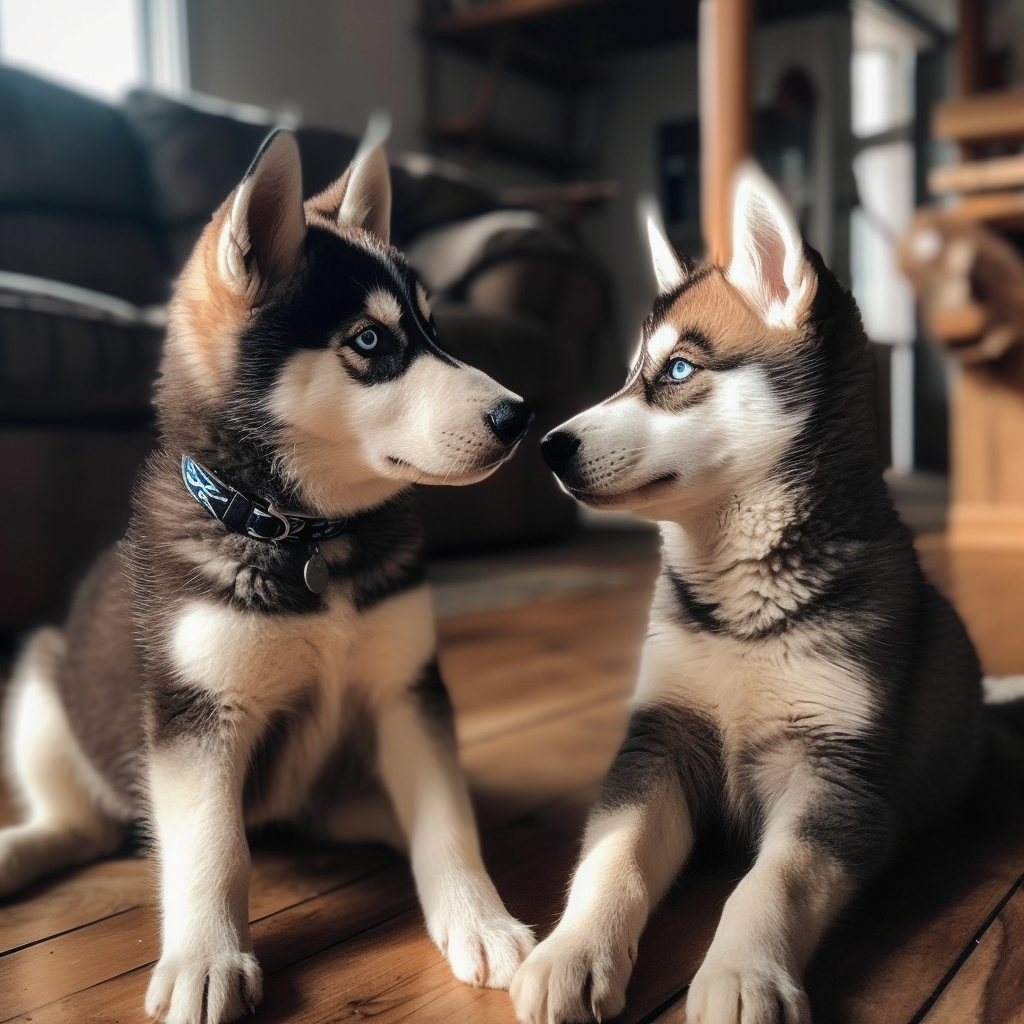
When it comes to an endearing mix of energy, intelligence, and affection, few breeds can rival the Siberian Husky. With their striking blue or brown eyes, playful nature, and wolf-like appearance, Huskies have captured the hearts of many dog lovers. In this article, we will delve into the various aspects of the Husky personality and temperament, covering their high-energy lifestyle, independent streak, affectionate nature, and vocal tendencies. By understanding these unique traits, you’ll be better prepared to provide your Husky with the care and companionship they deserve.
| Table of Contents 1. High-Energy Personality 2. Independent Temperament 3. Affectionate Behavior 4. Huskies Are Vocal 5. The Social Husky 6. Intelligent Breed 7. Adventurous Spirit 8. The Protective Husky |
1. The High-Energy Husky Personality
Exercise Requirements
Originally bred as sled dogs, Huskies are known for their incredible stamina and endurance. As a result, they require a significant amount of daily exercise to remain healthy and content. A well-exercised Husky is generally happier and easier to manage in the home environment. Ideally, a Husky should receive at least one to two hours of physical activity per day, including walking, runs, and play sessions. This breed particularly enjoys outdoor activities, such as hiking, jogging, and even dog sports like agility and canicross.
Mental Stimulation and Enrichment
In addition to physical exercise, Huskies also need mental stimulation to keep their intelligent minds engaged. Mental enrichment activities can help prevent boredom and curb destructive behaviors. Interactive toys, puzzle feeders, and training sessions are excellent ways to keep your Husky mentally stimulated. Additionally, providing your dog with opportunities to explore and interact with their environment, such as nose work or scent games, can help satisfy their natural curiosity and instincts.
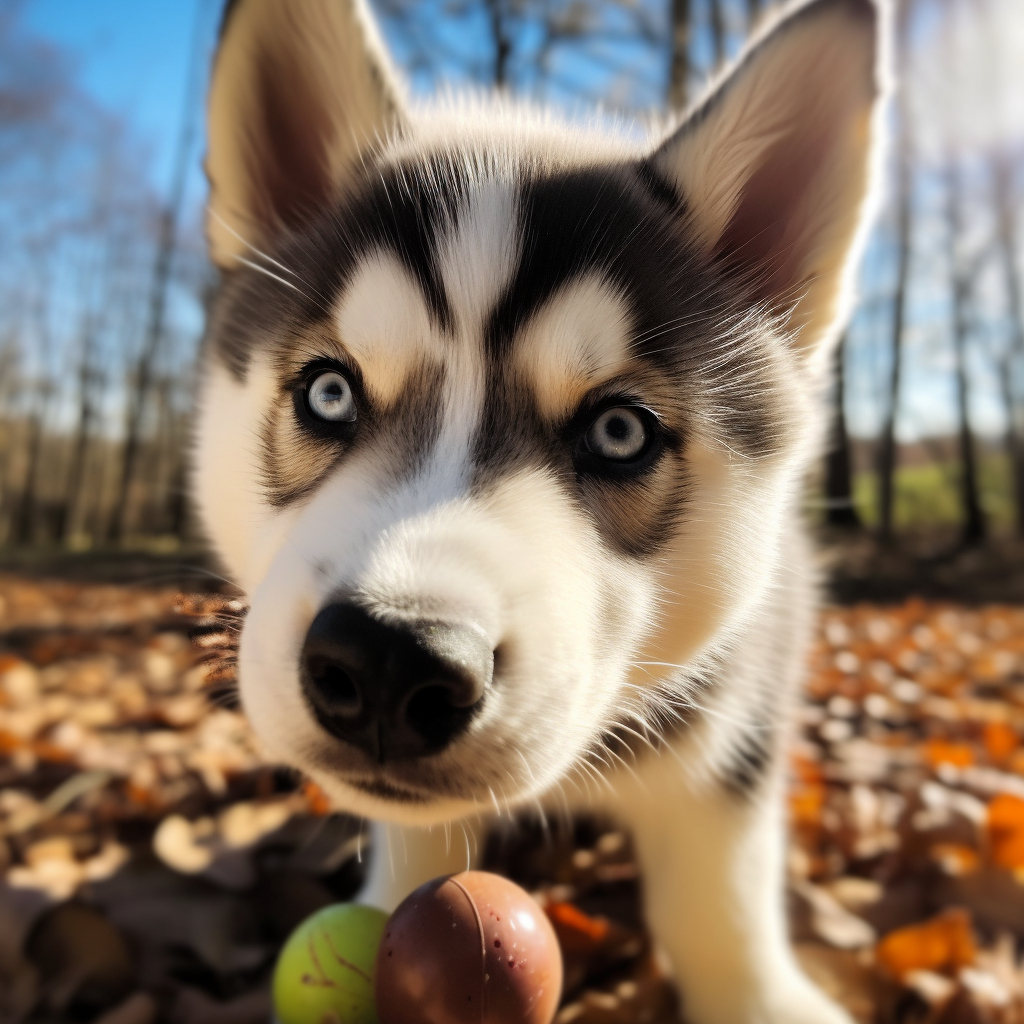
Impact of Insufficient Exercise on Behavior
When a Husky does not receive adequate exercise and mental stimulation, their pent-up energy can manifest in undesirable behaviors. These may include excessive vocalizations, hyperactivity, and destructive tendencies, such as chewing on furniture or digging in the yard. Ensuring your Husky has ample opportunities to expend their energy will help prevent these behavioral issues and contribute to a more harmonious home life.
For more information, see how much exercise does a husky need >>
2. The Independent Husky Temperament
Importance of Training and Boundaries
While Huskies are intelligent and capable learners, their independent temperament can sometimes make them appear stubborn or aloof during training. Consistency, patience, and positive reinforcement are crucial when working with a Husky. Establishing clear boundaries and expectations from a young age will help your Husky understand their role in the household and develop a strong foundation for future training endeavors. Remember, early training and socialization are essential for a well-mannered and adaptable Husky.
The Challenge of Stubbornness
The Husky temperament can be stubborn at times, often choosing to do things their way rather than following instructions. This can be both endearing and frustrating for their owners. It is essential to remain patient and persistent when training a Husky, using positive reinforcement techniques to encourage desired behaviors. Keep in mind that Huskies are more likely to respond to training methods that are engaging and enjoyable, so incorporating play and rewards can help motivate them to cooperate.
Building Trust and Bonding with Your Husky
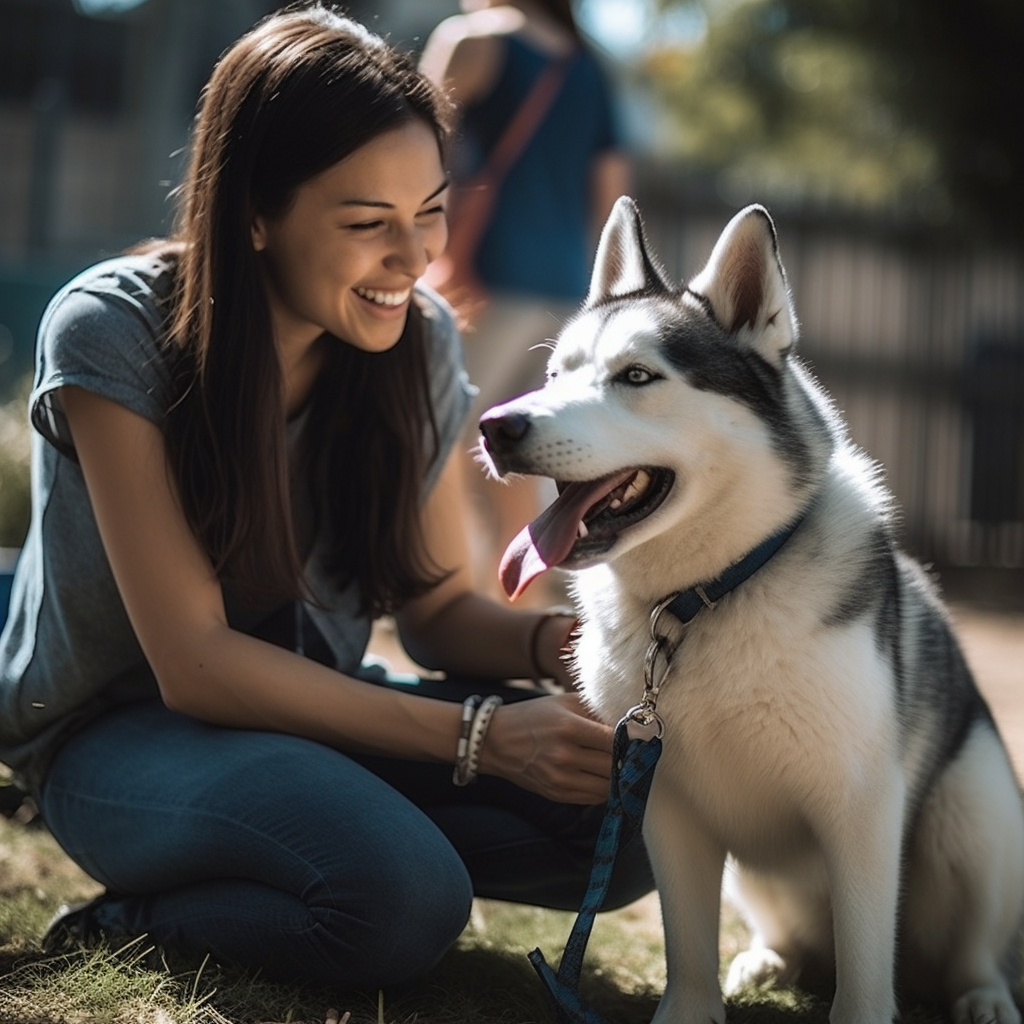
Developing a strong bond and trust with your Husky is crucial for a successful training relationship. Spend quality time with your dog, engage in activities they enjoy, and provide them with the love and attention they crave. By doing so, you will foster a deeper connection with your Husky, which will make them more likely to be responsive to training and guidance. Remember, a strong bond with your dog is the foundation for a harmonious and rewarding relationship.
3. Affectionate Behavior
Bonding with Family Members
Despite their independent nature, the Siberian Husky personality is known for being affectionate and loyal. They tend to form strong bonds with their human family members and enjoy spending time with them. Huskies thrive on companionship and can become unhappy or anxious when left alone for extended periods. It is essential to provide your Husky with the social interaction they need to maintain their emotional well-being.
Huskies and Children
Generally, the Husky temperament is gentle and patient, making them well-suited for households with children. They enjoy playing and can be quite tolerant of a child’s energy and enthusiasm. However, it is important to remember that every dog is an individual, and early socialization is crucial for ensuring a positive relationship between your Husky and the children in your home. As always, supervision and teaching proper interaction is necessary when children and dogs are together to ensure the safety and well-being of all involved.
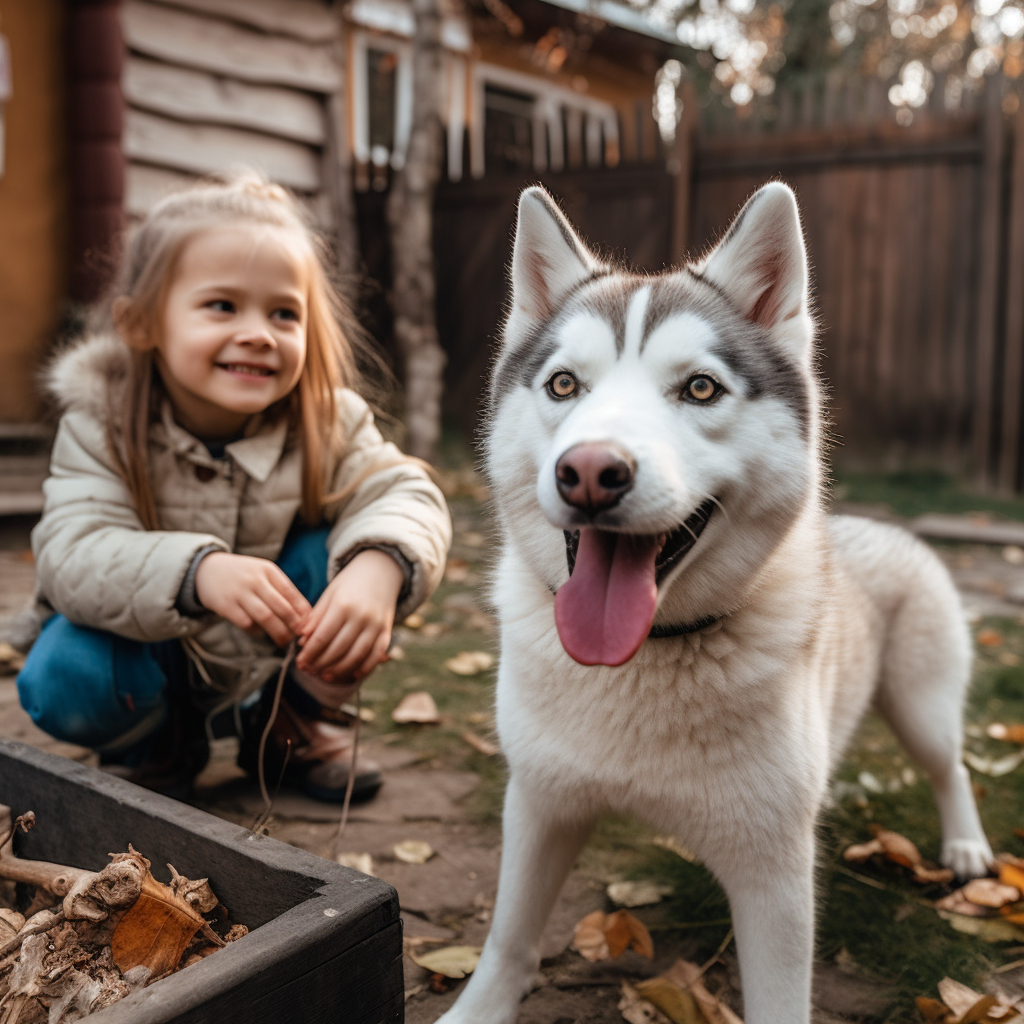
Cuddles and Physical Affection
Huskies are often quite affectionate and enjoy cuddling with their family members. They may seek out physical contact, such as leaning against you or resting their head in your lap. Providing your Husky with regular affection and physical touch can help strengthen your bond and reinforce the positive relationship you share. However, it is essential to respect your dog’s boundaries and recognize when they may not be in the mood for cuddles or physical contact.
4. Siberian Huskies Are Vocal
Reasons for Husky Vocalizations
Huskies are known for their unique vocalizations, which can range from howling to “talking” with a series of melodic sounds. Their vocal nature is deeply ingrained in their history as sled dogs, where they used vocalizations to communicate with their human handlers and other dogs. A Husky may vocalize for various reasons, such as expressing their emotions, seeking attention, or simply because they are excited and happy.
Managing Vocal Behaviors
While some owners may find their Husky’s vocalizations endearing, others may struggle with managing these behaviors, especially in situations where excessive noise is not appropriate. Training your Husky to understand and respond to commands like “quiet” can be helpful in managing their vocalizations. Additionally, providing your dog with adequate exercise, mental stimulation, and social interaction can help reduce the likelihood of excessive vocalizing due to boredom or frustration.
Potential Issues with Neighbors and Noise
For those living in close proximity to neighbors, a vocal Husky may pose challenges in maintaining peaceful relationships with those nearby. It is crucial to be mindful of your neighbors’ comfort levels and take steps to address any noise concerns they may have. Open communication and a willingness to work together can help alleviate any tensions that may arise due to your Husky’s vocal tendencies.
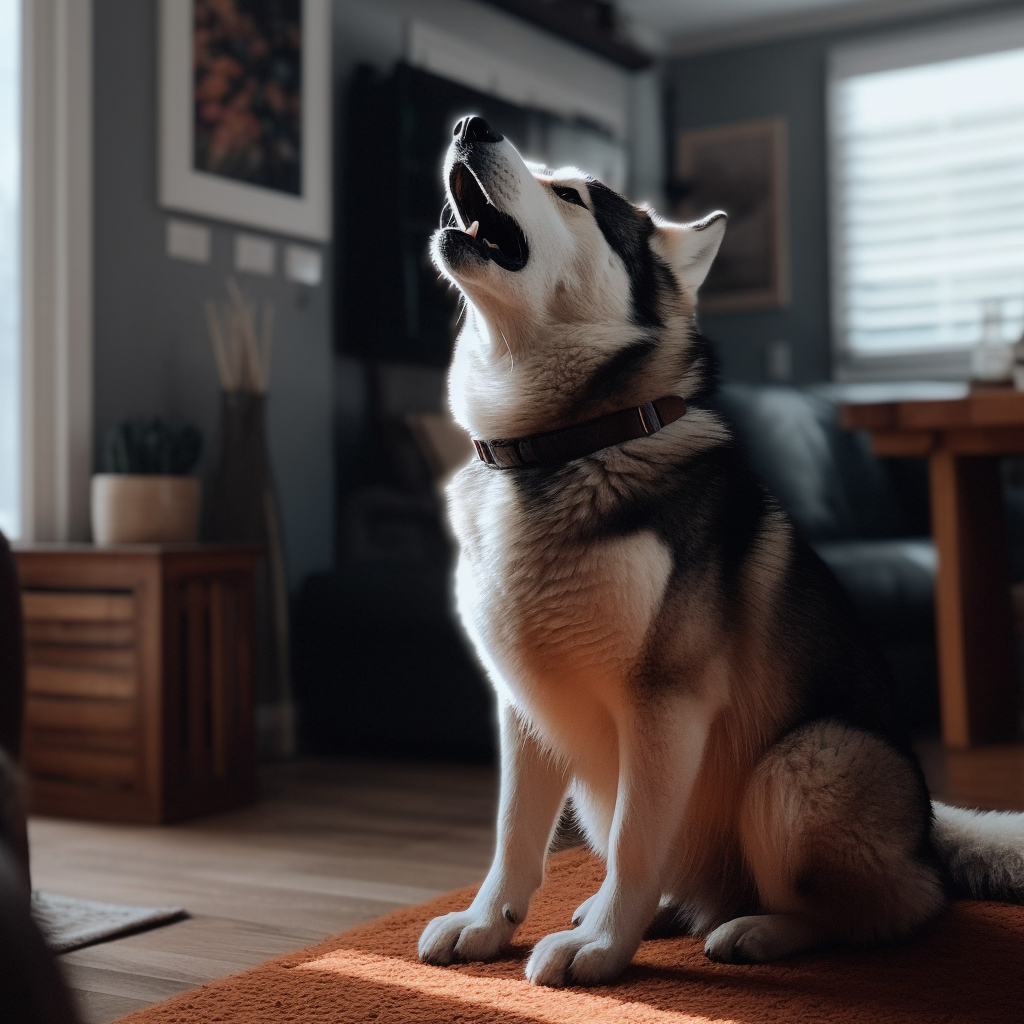
5. The Social Husky Personality
Huskies and Other Dogs
Having a history as sled dogs working in packs, Huskies are generally social animals that enjoy the company of other dogs. They can form strong bonds with their canine counterparts, playing and interacting well together. However, as with any breed, proper socialization is crucial to ensure that your Husky develops positive relationships with other dogs.
Huskies and Other Pets
While Huskies are known to get along with other dogs, their high prey drive may pose a challenge when it comes to living with smaller animals such as cats, rabbits, or rodents. It is essential to closely supervise interactions between your Husky and smaller pets, taking necessary precautions to ensure the safety of all animals involved. Some Huskies can coexist peacefully with small animals, especially if raised together from a young age, but it’s crucial to recognize and respect your dog’s individual instincts and limitations.
Making Friends at the Dog Park
Dog parks can be a great place for your Husky to socialize, play, and burn off energy. When visiting the dog park, make sure your dog is well-socialized and behaves appropriately with other dogs. Keep an eye on your Husky, ensuring they don’t become overly excited or engage in any aggressive behavior. It’s important to intervene when necessary and maintain control of your dog in a social setting.
6. The Intelligent Siberian Husky Breed
Learning New Tricks and Commands
A unique quality of the Husky personality is their intelligence and ability to quickly pick up on new commands and tricks when properly motivated. Positive reinforcement, such as praise and treats, can be highly effective in teaching your Husky new skills. Keep training sessions short and engaging to hold your dog’s attention and make the experience enjoyable for both of you. Remember that a Husky’s personality can be independent and stubborn at times, so patience and consistency are crucial for successful training. We also have specific advice on training a new Husky puppy.
Problem-Solving Skills
Their intelligence and natural curiosity make Huskies excellent problem solvers. They can often figure out how to open doors, escape enclosures, or find hidden treats, showcasing their keen minds. Providing your Husky with puzzle toys and interactive games can help channel their problem-solving skills in a positive and constructive manner while providing much-needed mental stimulation.
The Importance of Mental Stimulation
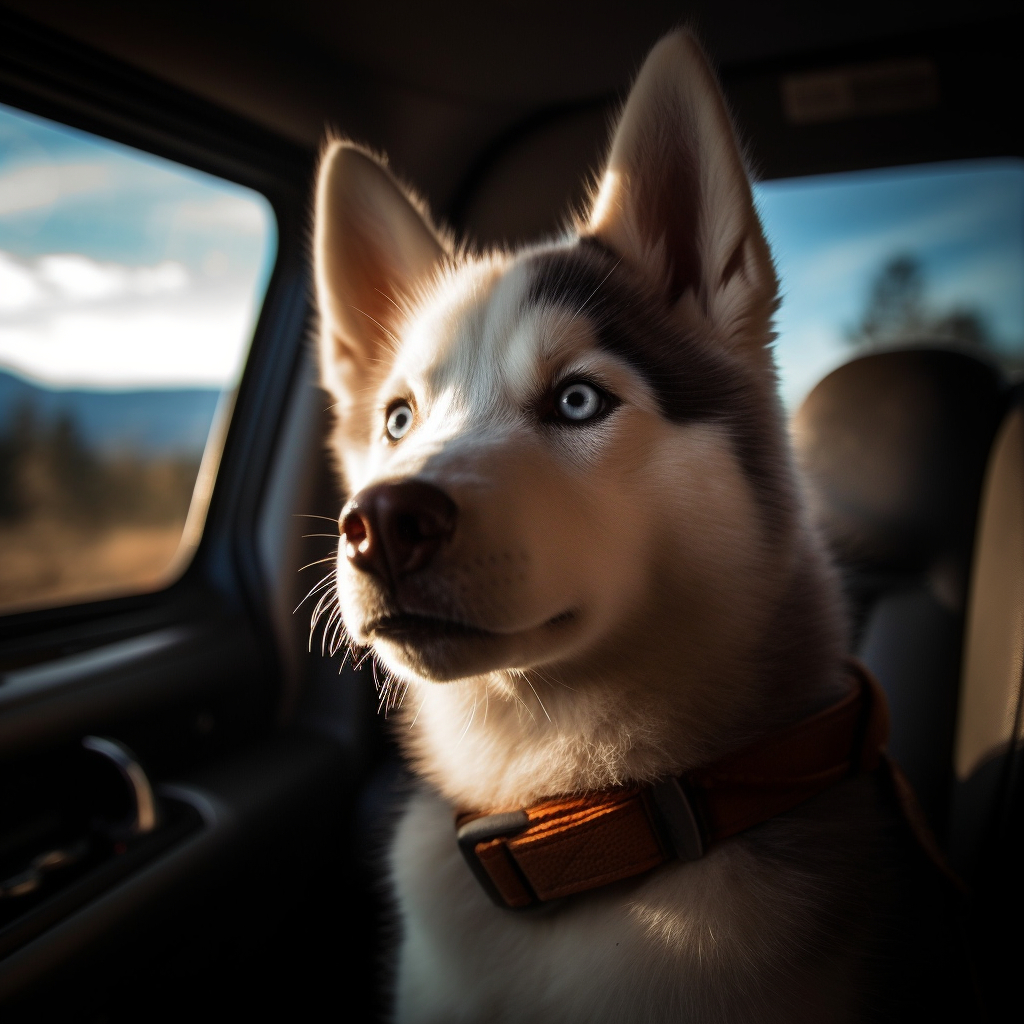
Along with regular physical exercise, mental stimulation is essential for keeping your Husky’s mind sharp and preventing boredom. A bored Husky may engage in destructive behaviors or become vocal to entertain themselves. Incorporate mental enrichment activities into your dog’s routine, such as training sessions, interactive toys, or scent games, to keep their minds engaged and satisfied.
7. Adventurous Temperament
Outdoor Activities and Sports
Huskies have a strong love for adventure and thrive when participating in outdoor activities and sports. They excel in activities like hiking, running, and agility, allowing them to utilize their energy and natural athletic abilities. Additionally, engaging in outdoor adventures with your Husky can help strengthen your bond and provide a healthy outlet for their energy and enthusiasm.
The Husky’s History as a Working Breed
Originating in Siberia as sled dogs, Huskies have a long history as a working breed. Their strong work ethic, stamina, and endurance make them well-suited for various tasks and sports. Understanding their working background can help you appreciate their energy levels, intelligence, and drive, and provide them with the appropriate outlets to satisfy their innate instincts.
Escape Artist Tendencies and Containment
As intelligent and curious dogs, Huskies are known for their escape artist tendencies. They can quickly learn how to open gates, climb fences, or dig their way out of enclosures. To prevent your Husky from roaming or getting into dangerous situations, it is essential to provide a secure and escape-proof environment. This may include reinforcing fences, using locks on gates, and monitoring your dog closely when outdoors. For more info, we have a detailed article written on Husky crate training to help you through this process.
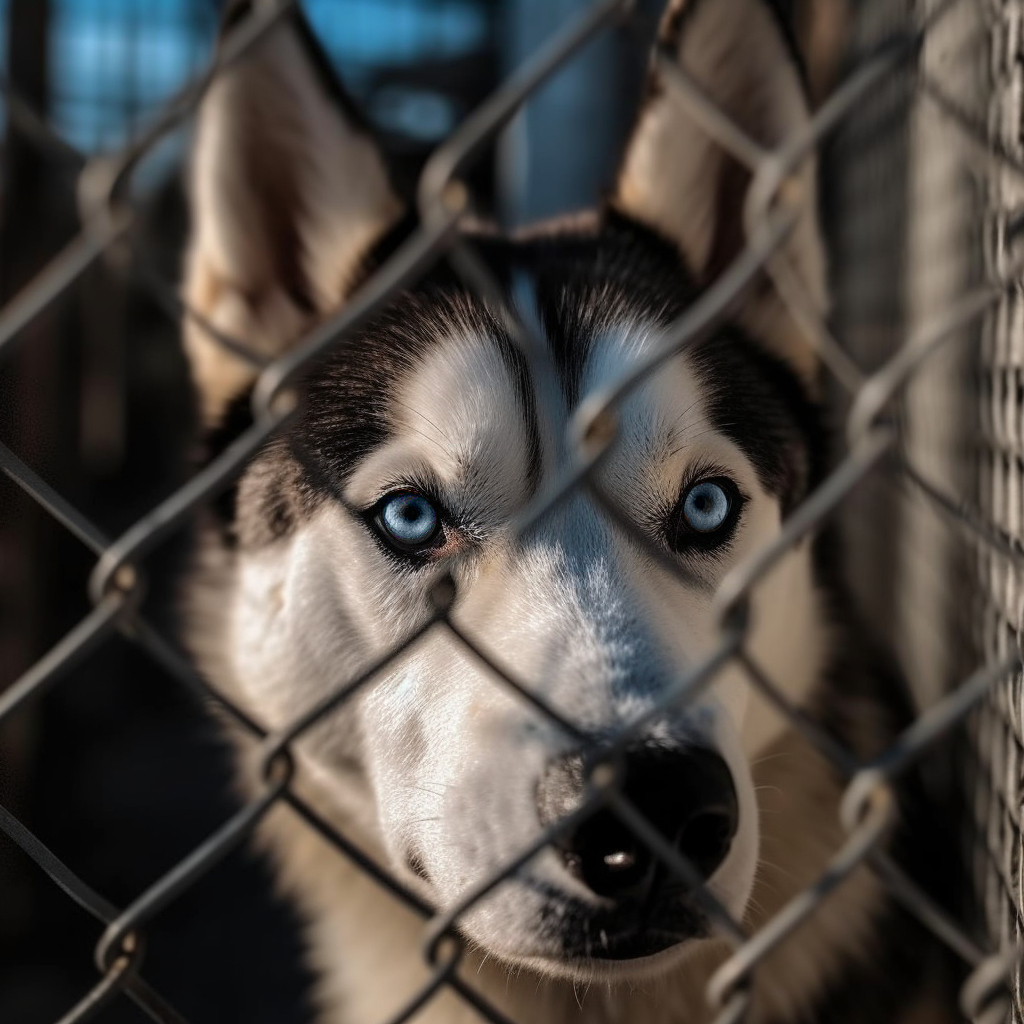
8. The Protective Husky Personality
Instincts and Watchdog Behavior
Although Siberian Huskies are not typically aggressive, they can exhibit protective instincts and serve as effective watchdogs. They may be alert and cautious around strangers, barking or howling to signal the presence of unfamiliar people or potential threats. This behavior is not inherently negative, but it is essential to manage it appropriately to prevent Husky behavior problems like excessive barking or unwarranted aggression.
Socialization and Proper Training
Proper socialization and training are crucial for ensuring that your Husky’s protective instincts don’t become problematic. Exposing your dog to various people, animals, and environments from a young age can help them learn to distinguish between safe and potentially dangerous situations. When training your Husky, teaching basic obedience commands can help you maintain control of their behavior in different situations. This will help prevent any undesirable protective instincts from escalating.
Balancing Protection with Sociability
While it’s natural for your Siberian Husky to exhibit protective behaviors, it’s important to balance their instinct to protect with their inherent sociability. Encourage your Husky to be friendly and accepting of new people and experiences, reinforcing positive interactions with praise and treats. By nurturing both their protective and social sides, you can help your Husky develop into a well-rounded and adaptable companion.
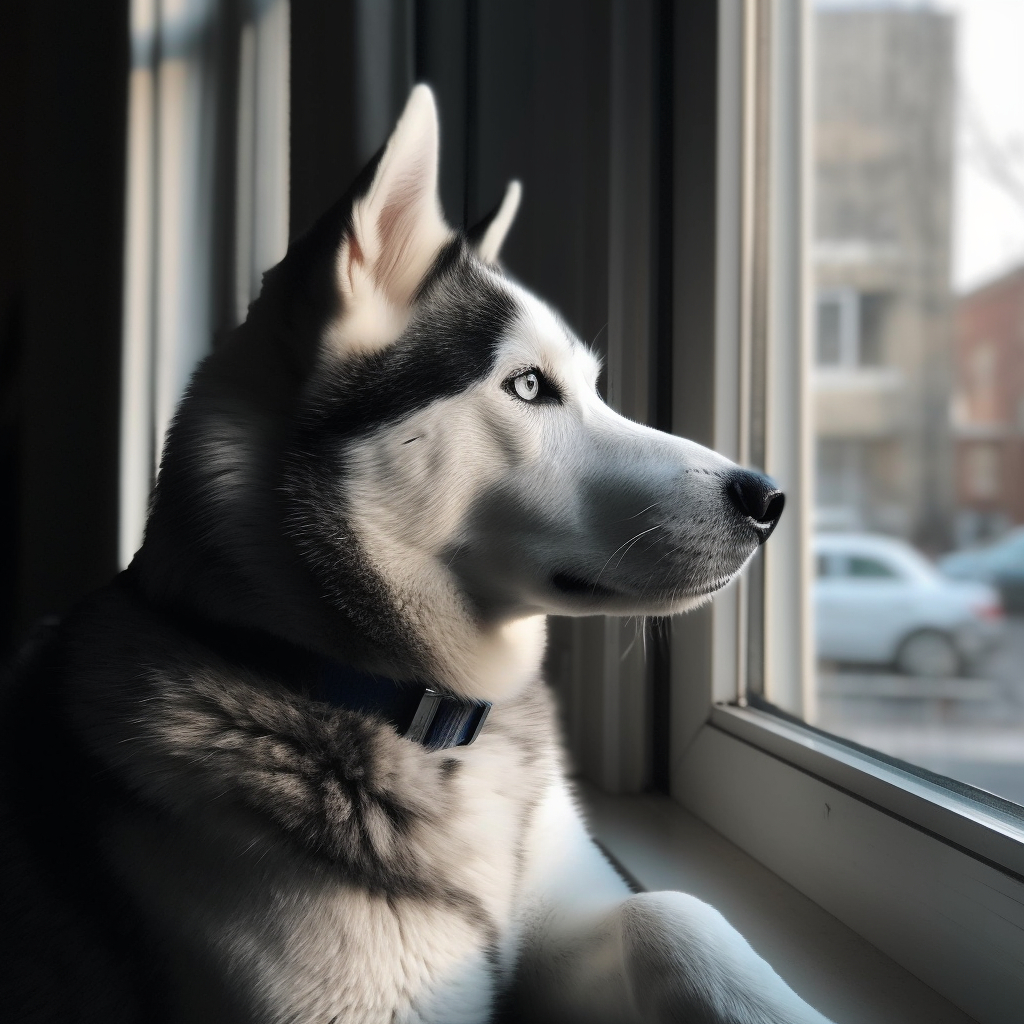
Conclusion
The Siberian Husky is a unique breed, possessing a captivating blend of intelligence, independence, and affection. By understanding and embracing their distinct personality traits, you can provide your Husky with the care, exercise, and socialization they need to thrive. A well-cared-for Husky can be a loyal, loving, and adventurous companion, making them a truly rewarding addition to your family. So, cherish the quirks and challenges that come with owning a Husky, and enjoy the incredible bond you’ll create along the way.
Related Topics:
+ Husky Puppy Training
+ Walking a Husky
+ How Much Exercise Does a Husky Need
+ Husky Behavior Problems
+ Husky Crate Training
+ Husky Training Tips
+ Potty Training for Huskies
Other Siberian Husky Topics:
+ Husky Grooming
+ Best Husky Crates
+ Husky Fun
+ Husky Deshedding
+ Husky Brushes
+ Siberian Husky Info
Husky Image Galleries:
+ Siberian Husky Pictures
+ Cute Husky Puppies
+ Husky Wallpaper
+ Husky Clipart
+ Husky Images